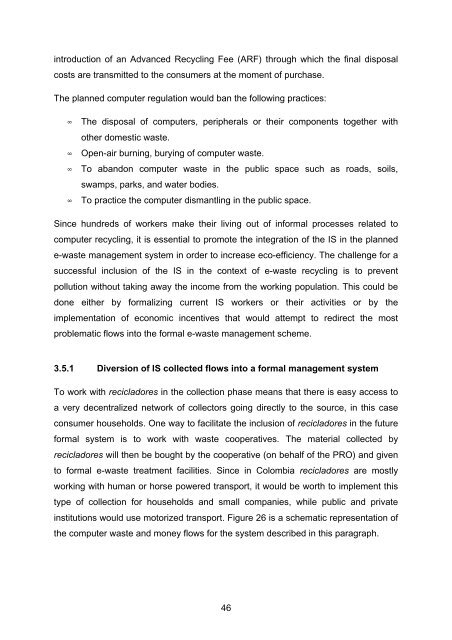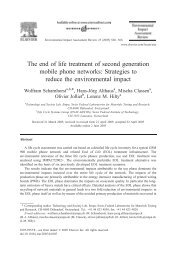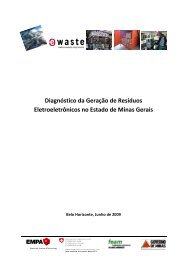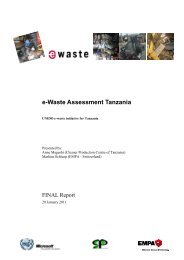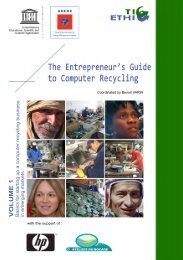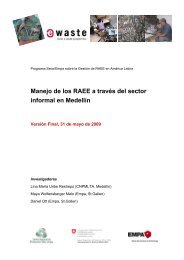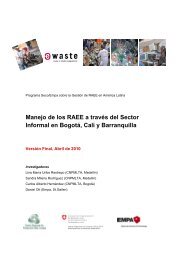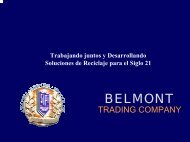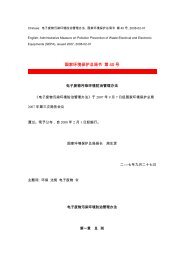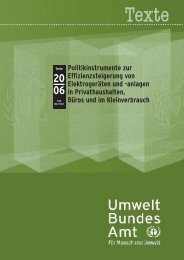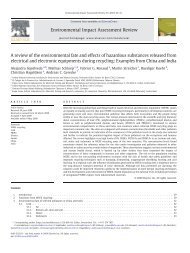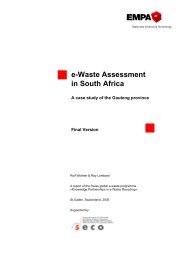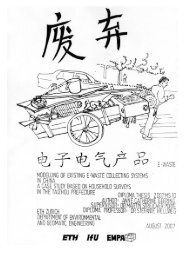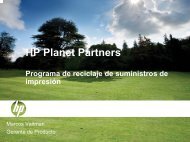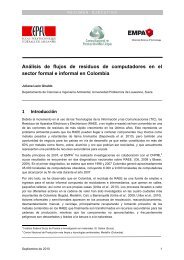10 07 29 Master thesis Juliana Leon - e-Waste. This guide
10 07 29 Master thesis Juliana Leon - e-Waste. This guide
10 07 29 Master thesis Juliana Leon - e-Waste. This guide
Create successful ePaper yourself
Turn your PDF publications into a flip-book with our unique Google optimized e-Paper software.
introduction of an Advanced Recycling Fee (ARF) through which the final disposal<br />
costs are transmitted to the consumers at the moment of purchase.<br />
The planned computer regulation would ban the following practices:<br />
• The disposal of computers, peripherals or their components together with<br />
other domestic waste.<br />
• Open-air burning, burying of computer waste.<br />
• To abandon computer waste in the public space such as roads, soils,<br />
swamps, parks, and water bodies.<br />
• To practice the computer dismantling in the public space.<br />
Since hundreds of workers make their living out of informal processes related to<br />
computer recycling, it is essential to promote the integration of the IS in the planned<br />
e-waste management system in order to increase eco-efficiency. The challenge for a<br />
successful inclusion of the IS in the context of e-waste recycling is to prevent<br />
pollution without taking away the income from the working population. <strong>This</strong> could be<br />
done either by formalizing current IS workers or their activities or by the<br />
implementation of economic incentives that would attempt to redirect the most<br />
problematic flows into the formal e-waste management scheme.<br />
3.5.1 Diversion of IS collected flows into a formal management system<br />
To work with recicladores in the collection phase means that there is easy access to<br />
a very decentralized network of collectors going directly to the source, in this case<br />
consumer households. One way to facilitate the inclusion of recicladores in the future<br />
formal system is to work with waste cooperatives. The material collected by<br />
recicladores will then be bought by the cooperative (on behalf of the PRO) and given<br />
to formal e-waste treatment facilities. Since in Colombia recicladores are mostly<br />
working with human or horse powered transport, it would be worth to implement this<br />
type of collection for households and small companies, while public and private<br />
institutions would use motorized transport. Figure 26 is a schematic representation of<br />
the computer waste and money flows for the system described in this paragraph.<br />
46


